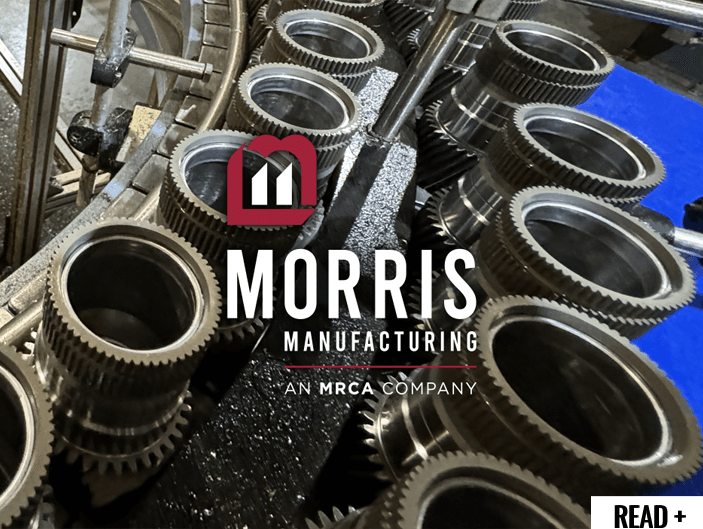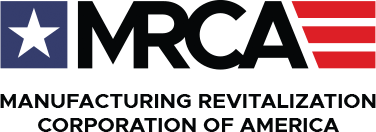February 5, 2025 | News
MORRIS MANUFACTURING ACQUISITION

Starting as a repair center for local residents’ farming equipment in 1962, W.E. Morris’ 2,400 square foot facility in Brazil, Indiana grew to one of the nation’s largest high-volume precision machine parts makers focused on Tier 1 parts for General Motors and other large scale customers.
Chip Morris, fourth generation leader of this family namesake company, realized that with no more Morris to take the reins, selling the company became the most viable option to secure the Morris legacy, retain the employees, and keep the company going.
Letting go of a 50+ year family commitment was not without challenges – the weight of legacy, combined with employee family it gathered along the way (some of them with 40-year tenue at the facility), proved to be daunting. This was not about finding ‘any’ partner. It was about finding the right one.
Chip and his leadership team first met MRCA over lunch. They immediately dismissed the guys; the general sentiment was “we’ll never hear from them again.”
But MRCA kept in contact. Moreover, when Morris and the team narrowed the suitors to a few groups, a pivotal moment ensued: Chip asked for plans from each group. Ultimately, they sought to:
• Avoid those who wanted NO involvement
• Avoid those who wanted to dismantle and sell off parts of the company
• Focus on those who focused on people (remember, those employees are ‘family’)
On asking potential acquirers for plans – MRCA said “We don’t have one” (this intrigued Chip). He thought, “Well, at least they are honest!” But what stood out for him and his team was when MRCA said, “We’re going to take 6 to 12 months to learn your business before we make any recommendations. You’ve been successful up to now – why do we need to change anything?”
For a seller whose principal consideration was LEGACY, this sounded like a group he could align with. More than that, a team his employees could work alongside. Being fourth generation and handing over the reins meant finding someone who could respect and carry forward the family legacy PLUS ensure his people were properly respected.
MRCA came with no preconceived notions – with no “playbook for how we do this” – which was different and, in the end, he felt like this showed respect for his values.
He found MRCA to be:
• Down to Earth
• Approachable
• Accessible
• Share the same work ethic he does (this was very different from others)
Most of all, Chip felt heard. His concerns were carefully understood. MRCA asked more than they spoke.
In the end, persistence paid off – Morris Manufacturing received several offers. Some were more lucrative, but MRCA felt like the right fit. Chip said while MRCA lacked a plan it had a vision and that speaks to longevity.
